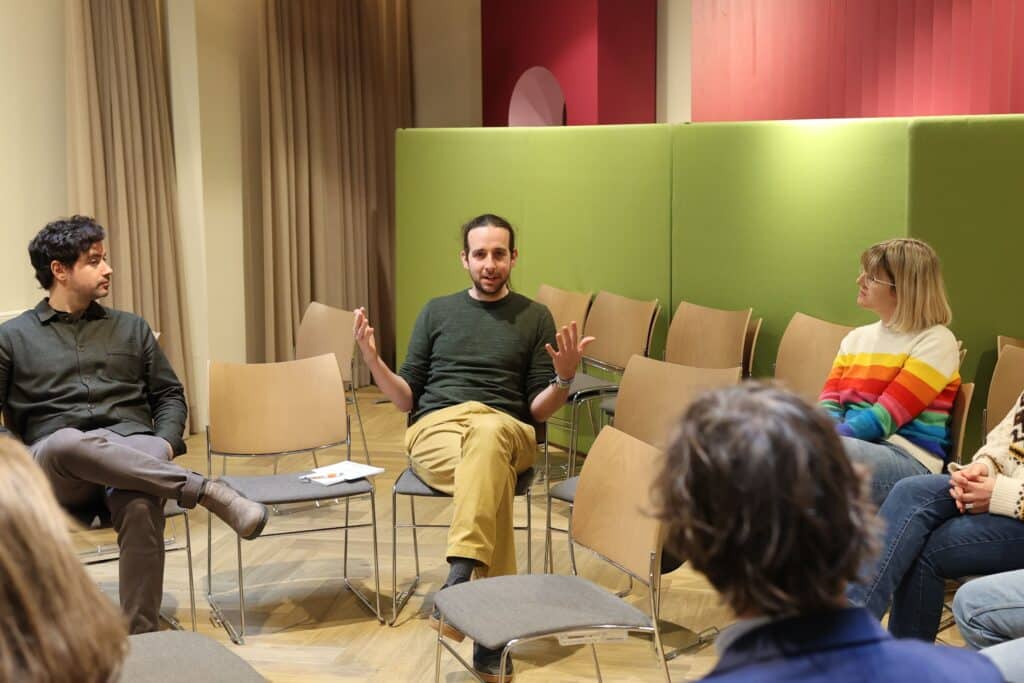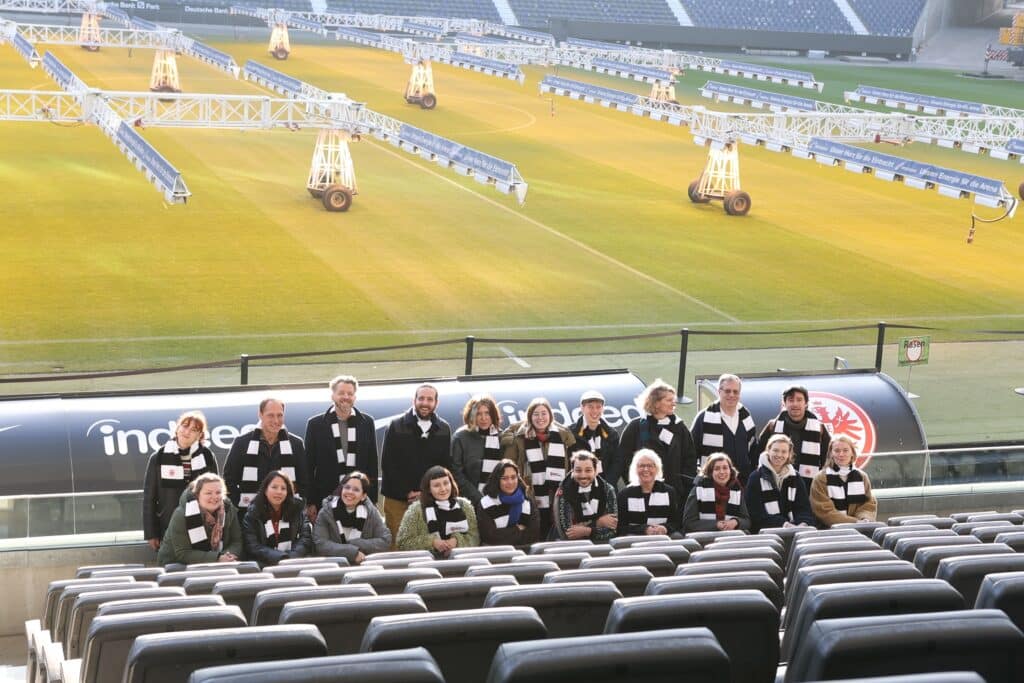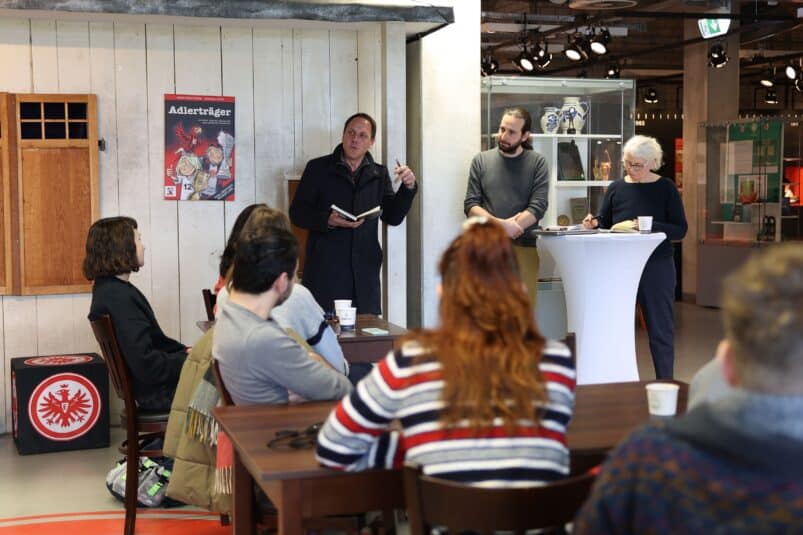Billions of people across the world play, watch and follow ‘the beautiful game’ and are interested in its long history. The Erasmus+-funded project Football Makes History operates right at that intersection, connecting football heritage with history education. “Football heritage can be used as a gateway to discuss history. By using this approach, educators can gain the attention of students that might otherwise have had no interest in the past”, explains Jonathan Even-Zohar, programme coordinator on behalf of project partner Reinwardt Academy in Amsterdam.
The idea started in 2014 when Even-Zohar was director of EUROCLIO (the European Association of History Educators). “Together with a couple of history teachers, we started discussing if we could teach 20th-century history by using stories from the footballing world, so football heritage. The goal was to create modules that educators can use to teach about history in such a way that students can learn something from it, even if they are not interested in football or heritage.”
Gateway to History
So how does it work? High school teachers and other educators can visit the project’s website and choose from hundreds of modules. Each revolves around a historic theme (often from the 20th century) such as the Anglo-Argentine conflict or the life of French-Maroccan striker Just Fontaine, World Cup record goal scorer (13 goals), and union leader. “It’s not about which player scored a goal in what minute, but about the greater historical and cultural context. It’s about students developing critical historical thinking skills and empathy”, explains Even-Zohar.
“Take for example the module on the Anglo-Argentine conflict and the 1986 World Cup Final between England and Argentina.” By discussing the effects of nationalism and foreign policies on football rivalries, students are taught about historical events and their consequences. Or by researching French referee Stephanie Frappart, the first woman to lead a European cup final in men’s football, students learn to consider different perspectives through discussion points.

“The website becoming a resource itself happened by accident”, notes Even-Zohar. “During the pandemic, the project was unable to continue with meetings, but the contributors were eager to put their energy and free time into the website” The project has now collected more than 100 life stories, 34 themed resources, and over 100 additional stories. Filmmaker Stefan di Pietro even made a mini-documentary on migrants playing football in Italy, tackling the topic of exclusion.
But despite, or maybe because of, the popularity amongst history teachers, the project is still figuring out what modules and teaching methods work best to have students engage and become interested in history. “We haven’t been able to observe that in detail ourselves, but we’re working on it”, says the coordinator. “Part of the current Erasmus+ project is that Gijsbert Oonk – professor of history at partner Erasmus University Rotterdam – is developing a self-assessment tool for educators who use these modules. That should give us more insight.”
Conversation starter
But why use football to talk about history in the first place? “Good question, while there are plenty of people who love this game, many don’t care for it or even despise it because of the dark influence on the world it has sometimes”, notes Even-Zohar. “However, everyone knows what football is. We play it, or we watch and follow football in the media. It’s part of our daily lives and cultural fabric. Even those who don’t care for it, or actively dislike it know something about football.”
Football clubs can be regarded as local heritage communities, with their own stories
Jonathan Even-Zohar
He also reckons that the history of the game lends itself to discussing concepts relevant to heritage. “If you want to teach students something about colonialism, you can connect it to how football was spread across the world partly because of the British Empire. And if you’re talking about international competitions or national football teams, you can start a conversation about nationalism or exclusion for instance. There are so many aspects where football can act as a conversation starter.”
Clubs Interested in Education
While football-loving teachers embrace the project, non-educational actors are also becoming more interested; for example football clubs themselves. One of the project partners is the Eintracht Frankfurt Museum, dedicated to telling the history of the famous club from Frankfurt.
“Although it’s not the same organisation as the professional club, the museum has exhibitions with historical material, for example, letters from Jewish supporters who were deported in WWII, on women’s football, etc. Their main challenge is to connect this material with heritage education.”

That’s also where Even-Zohar’s position as programme coordinator at the Reinwardt Academy (the Amsterdam University of Arts) comes into play. “The Reinwardt Academy’s role is to find out how clubs and their museums work with society and societal issues, and together develop support for these football club museums.”
For three days, the students examined what the museum does for example in terms of communicating values and assessing their visitor experience. “The museum was thrilled with the feedback and is looking to improve the educational aspects based on that.”
Local Heritage Communities
Frankfurt is not the only football club with an eye for heritage: Even-Zohar reckons there are many projects that can be started with professional and amateur clubs. “They can be regarded as local heritage communities, with their own stories.” He is looking to set up a network with clubs with a focus on local identity and culture.
“For example, a partner in Katowice (Poland) organised that secondary school students will visit local football clubs to discover and report on stories about local heritage, which has a strong connection with the coal mines there. In the south of the Netherlands, but also Germany and Belgium there are similar ‘miner clubs’ with stories to be found and connect to local heritage.”
For the Football Makes History project, the final whistle certainly hasn’t blown yet as there are still plenty of stories to explore. And while for some football will merely remain a game of 22 players chasing a ball for 90 minutes, these footballing stories could prove to be an excellent way to teach history to people who otherwise would never have had any interest in it.

